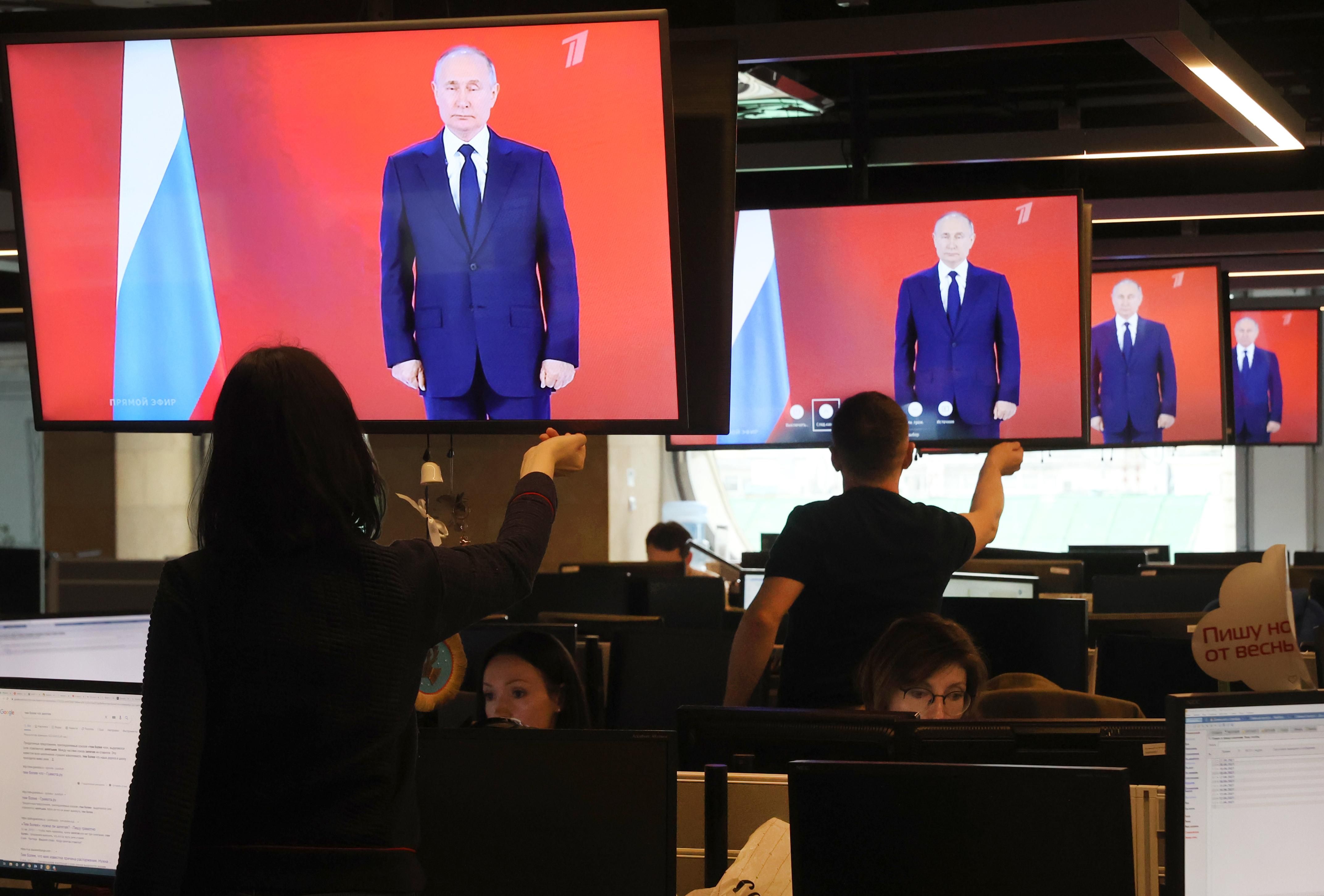Live broadcast of Russian President Putin's annual address to Federal Assembly
Vladimir Gerdo/TASS
Russian president Vladimir Putin on Wednesday threatened an "asymmetrical, rapid, and harsh" response for anyone that dares to cross a "red line" with Russia.
What's the red line? Putin says he'll decide on a case-by-case basis. And the cases at the moment are growing: the US has sanctioned Russia over cyber crimes; Putin critic Alexei Navalny is near death in a Russian prison; the Czechs say Russia blew up a Czech munitions depot; and as many as 120,000 Russian troops are reported to be massing along Russia's border with Eastern Ukraine.
Which is to say: there's potentially a Sol Lewitt's-worth of red lines to ponder now.
